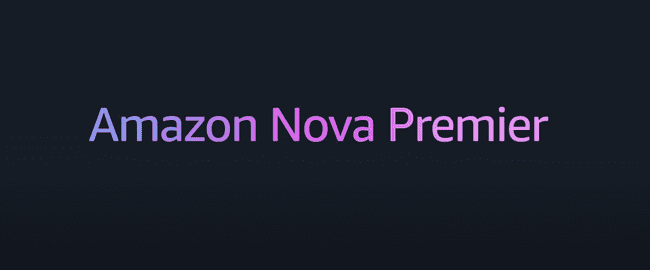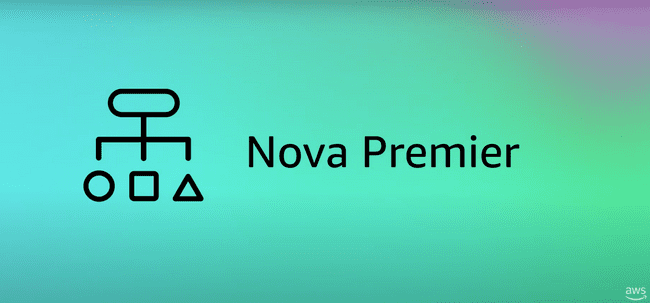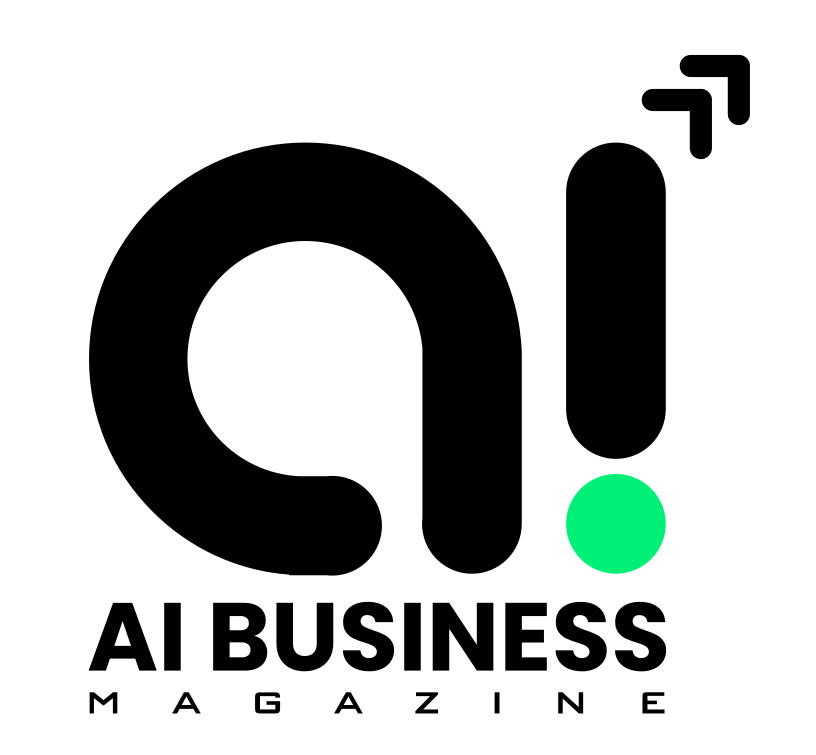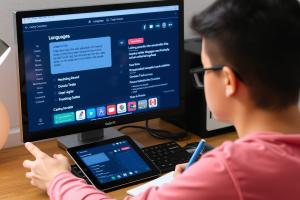Overview

This spring has brought remarkable changes in the tech world. After years of big promises, smart computer systems are finally delivering practical tools that actually work. At the forefront of this wave is Amazon’s Nova Premier, a system that’s changing what we thought computers could do.
When Smart Tech Got Serious
The past two months have seen computer systems that don’t just sound impressive in press releases but solve real problems. What makes this moment different is how these tools are changing everyday work and life.
“We’re finally seeing research become reality,” says Dr. Samantha Chen from MIT. “The ideas scientists have discussed for years are now in products regular people can use.”
Progress is happening worldwide:
- Apple has built smarter assistants into iPhones and Macs that understand what you want across different apps
- Google’s AMIE system helps doctors spot problems in X-rays that might otherwise be missed
- Alibaba’s Qwen3 excels at working with many languages, especially Asian ones
- Anthropic’s Claude 3.7 can understand long, complicated documents better than earlier systems
Meanwhile, lawmakers are taking notice. Texas is working on new rules for how these systems can be used in government services. European officials are investigating how these tools collect and use personal data, focusing on whether people truly consent to how their information is used.
Amazon Nova Premier: A Different Kind of Smart System

On May 1st, Amazon Web Services released Nova Premier without much fanfare. What seemed like just another tech update has quickly proven to be something more important.
Nova Premier represents a new approach – instead of building systems that do one thing well, Amazon created what they call a “universal helper.” The differences become clear when you look at what it can do:
| Feature | Nova Premier | Older Systems | Why It Matters |
| How much it can read at once | Entire books or manuals | Parts of documents | Can understand complete documents without losing context |
| Types of content | Text, pictures, videos, and sound | Mostly just text | Creates better understanding by connecting different types of information |
| Power needs | Uses 75% less computing power | Energy-hungry | Costs less to run and better for the environment |
| Understanding time | Can track and predict patterns over time | Limited understanding of sequences | Better at planning and spotting trends |
| Using other software | Can work with over 200 different tools | Few or no connections to other software | Works more independently to solve problems |
Amazon’s lead scientist, Dr. Rajiv Mehta, explained their goal: “We weren’t just trying to make something bigger. Nova Premier is designed to think more thoroughly—a helper that doesn’t just answer questions but solves problems.”
Teaching Smaller Systems
Perhaps the most important feature of Nova Premier is what Amazon calls its “teaching ability.” This changes how advanced computer systems can spread throughout different industries.
Until now, cutting-edge smart systems required expensive, powerful computers, making them available only to the biggest companies. Nova Premier changes this by creating smaller, specialized systems for specific industries or tasks.
“Think of Nova Premier as a master chef who can train new cooks,” explains researcher Dr. Emily Wong. “These ‘student’ systems need much less computing power but still cook almost as well as the master.”
Early examples show promising results:
| Industry | Specialized System | ;/ | Computer Requirements |
| Healthcare | NovaMed | Helps with diagnoses and treatment plans | Works on standard hospital computers |
| Legal | NovaLegal | Reviews contracts and checks regulations | 85% smaller than standard systems but performs similarly |
| Manufacturing | NovaFactory | Improves supply chains and quality control | Works on simple computers right on factory floors |
| Education | NovaEdu | Creates personalized learning paths | Works on typical school computers |
This change means small and medium-sized businesses can now use advanced tools that were previously only available to tech giants with unlimited resources.
The Rise of Smart Helpers
Another major trend this spring is the growth of what tech experts call “smart helpers” or “digital assistants.” Microsoft’s tech conference in April showed systems that can handle complex tasks with little oversight—booking travel, researching and writing reports, or managing marketing campaigns from start to finish.
Nova Premier is particularly good at powering these types of tools. It can remember long conversations and work through multi-step problems, making it more like a teammate than just a tool.
“There’s an important difference between answering a question and solving a problem,” noted analyst Morgan Zhang. “The new systems don’t just respond to requests; they understand what you’re trying to accomplish and work toward that goal.”
Real-world uses are appearing quickly:
- Research labs have helpers that design experiments, analyze results, and suggest next steps
- Software teams use specialized assistants for routine coding tasks, freeing human programmers to focus on creative problem-solving
Banks and investment firms have implemented systems that constantly watch market conditions and adjust strategies What’s Next: Looking Ahead
As we move through 2025, several key developments are worth watching:
- New rules and regulations will continue developing, with Europe’s comprehensive tech laws taking effect in August potentially setting global standards
- New computer chips specifically designed for these systems are expected later this year, potentially making them even more powerful
- Systems that work together are being developed, allowing different specialized tools to collaborate on complex problems
- Training programs are being rapidly created to help workers effectively team up with these systems
- Free and open alternatives to proprietary systems like Nova Premier are gaining momentum, potentially making these tools even more widely available
The biggest changes, however, may be cultural rather than technical. As society adapts to computer systems handling increasingly complex thinking tasks, our understanding of uniquely human abilities continues to evolve.
“Each major technological breakthrough has changed not just what we can do, but how we understand ourselves,” observes tech historian Dr. Marcus Williams. “The printing press, the industrial revolution, the internet—each forced us to reconsider what makes us human. This new era is prompting similar deep questions.”
As Amazon’s Nova Premier and similar systems continue reshaping our technological landscape, one thing is clear: Spring 2025 marks the beginning of a fundamentally new relationship between people and thinking machines.



